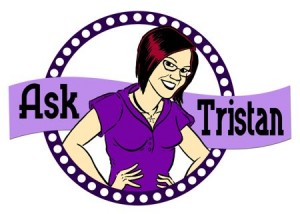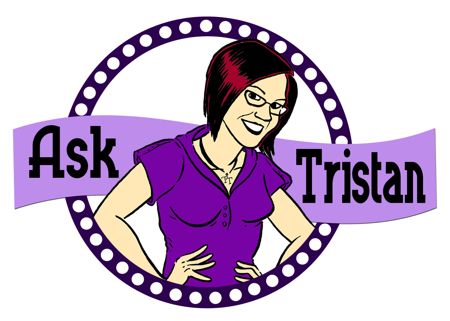
[Ed. note: This question is a legal one, so I asked my awesome expert, Davis from Sexquire to answer it.]
So, I was just reading a Coyote L.A. article that talks about what Prostitution is defined as, and I noticed that one can
define Prostitution as masturbation for pay. Would that mean that webcam modeling could be included in that definition? Is there an exception for cam, because I am using my camera?
To be sure I was answering the right question, I did some research to find the Coyote LA article you mentioned. After reviewing it, I can see how the issue might still be a bit confusing. The answer to your question is most likely no, but let me add a few caveats before getting in to too much detail.
Caveat 1 –The article you cited discussed California laws regarding prostitution, and each state (and often city or town) has its own specific rules that govern what is/is not illegal there. I’m going to answer your question under California law, but if you’re wondering about another state, or even an area in California other than LA, you’ll need to do some additional research.
Caveat 2 – Some places don’t have very specific laws, and often whoever is in power (mayors, council persons, sheriffs) dictate what types of things are more vigorously pursued at any particular time. If you’re new to an area, be sure you learn about the prostitution and sex work laws that govern, but also find out a bit about the area’s political climate and whether local governmental authorities are particularly active in this area.
Caveat 3 – Your question was about prostitution laws, but obscenity laws may also govern cam or fetish video work. Just because a local government agent can’t fit what you’re doing into the definition of prostitution doesn’t mean you’re necessarily in the clear, as obscenity and “lewdness” laws vary quite a bit from state to state.
Okay, with all that being said, let’s dive into your question. The article you mentioned discussed how dancing nude and masturbating oneself might meet the definition of prostitution under California Penal Code Sec. 647 (which defines prostitution). The actual language of the law is long and confusing, but the article is correct that the law includes in its definition of prostitution “a lewd act for money or other consideration” which is “the touching of breast, buttocks or genitals for the purpose of sexual gratification or arousal.” The article goes on to say that since the law does not define WHO is doing the touching, that one who dances nude or masturbates oneself as part of their act could, if their customer achieves sexual gratification, be found to have committed an act of prostitution. However, your question was not about someone dancing nude or masturbating themselves in front of someone IN PERSON, it was about cam work, where you are far removed from, and indeed may not even have any information at all about, your client. And this is what, at least for now, removes cam work from the definition of prostitution. It does not take place between two persons in public or private, as the California statute states for every definition of prostitution. It may seem a bit fuzzy, but because you have the barrier of the computer, the internet and space/time between you and the person purchasing your services, it simply doesn’t fit the current definition of illegal sex work. Of course it may fit under a pornography or obscenity definition, and with the recent laws and referendums in California one never knows how laws may change, but for now, at least in California, cam work does not likely fit the definition of prostitution and to my knowledge, no cases have been pursued.
One final caveat though – despite not technically fitting the definition, nothing prevents local law enforcement from claiming that a particular act is illegal, so know that although a case would likely not prevail, an overzealous officer and prosecutor could certainly charge someone with prostitution simply for cam or other work. So be careful out there regardless of what your local law currently says.
~~~~~~
Davis is the founder of Sexquire, a complete sex-positive business services company. Davis is the legal arm of Sexquire, having advised brick and mortar sex toy stores, sex educators, sex workers and other sex positive business folk on all manner of legal issues for over 7 years. In addition to legal matters, Sexquire also provides bookkeeping, accounting, personal assistance and other business services all with a sex-positive spin. You can find them online at their website, as well as Twitter and Facebook.

 [Ed. note: For this question, I turned it over to my legal expert, Davis from
[Ed. note: For this question, I turned it over to my legal expert, Davis from